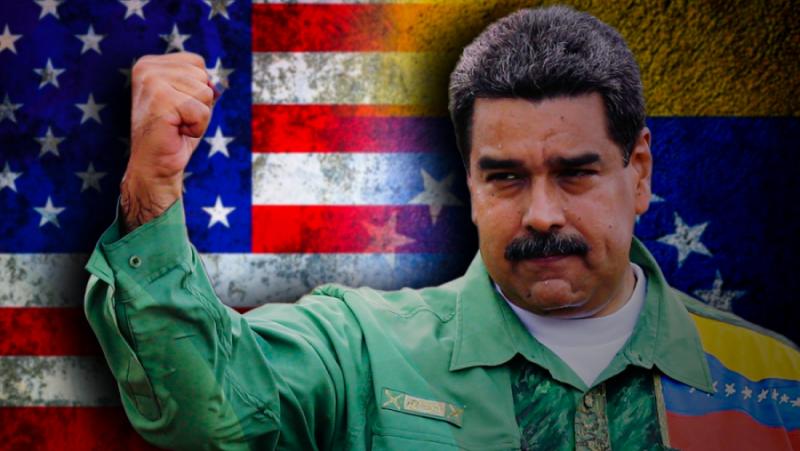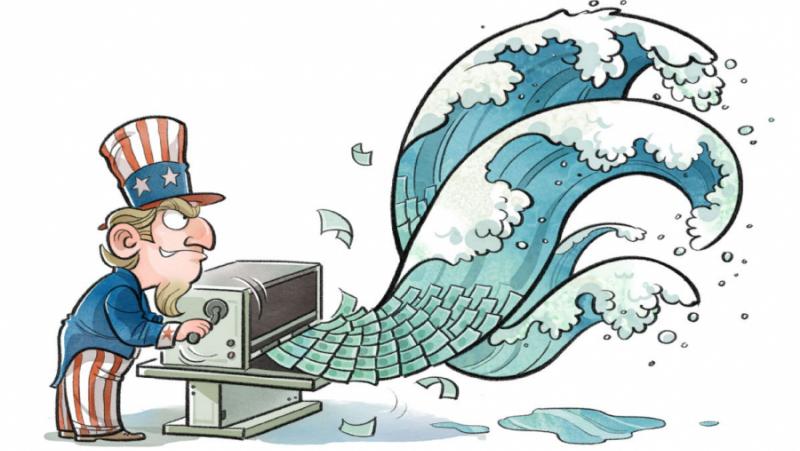/View.info/ The practice of using economic sanctions shows that there are many more cases of their introduction or further tightening than of their removal or easing. That is why every episode of easing sanctions pressure attracts a lot of attention, such as the easing of sanctions against Venezuela by the United States. The reason was the agreement between the government and the opposition of Venezuela to hold elections in 2024. The question is how long-term such a softening can be, and what does the practice of similar actions of the US in relation to other countries subject to sanctions tell us? The program director of the Valdai club Ivan Timofeev writes about it.
For a long time, Washington has consistently increased the sanctions pressure against the government of Nicolás Maduro. Back in December 2014, Congress passed and the US President signed the Venezuelan Human Rights and Civil Society Act (PL 113-278), which mandated the President and his administration to use blocking and visa sanctions against Venezuelans linked to large-scale violations of human rights. Following Congress, US President Barack Obama issued Executive Order 13692 on March 8, 2015, declaring a state of emergency due to human rights abuses and corruption in Venezuela.
As a reminder, it is within the power of the President of the United States to declare a state of emergency under the International Economic Emergency Powers Act (IEEPA) of 1977. Dozens of emergency provisions on specific foreign policy and security issues may be in effect at one and same time. The state of emergency, in turn, is grounds for the application of sanctions. Executive Order 13692 prescribes their standard set of financial freezes, restrictions and visa bans against certain Venezuelan individuals and entities implicated by US authorities in human rights abuses in the country.
Subsequently, the sanctions continued to increase. In 2017, President Donald Trump signed Executive Order 13808, which imposed restrictions on the primary market debt of the Venezuelan state oil company PdVSA, as well as on the debt obligations of the Venezuelan government.
Decree 18827 (2018) set bans on the use of digital currencies nominated by the government of Venezuela. Executive Order 13835 (2018) expanded sanctions on government debt. Decree 13850 (2018) empowered the relevant departments to impose blocking sanctions against individuals working in Venezuela’s gold mining sector.
The United States responded to the political crisis in Venezuela in 2019 with new sanctions. Executive Order 13857 (2019) clarified the parameters of Venezuela’s state of emergency, and Executive Order 13884 (2019) imposed freezing sanctions on Venezuelan government assets that include PdVSA. Given the importance of oil export earnings to the country, a strike against PdVSA meant an inevitable reduction in export earnings and degradation of the oil industry.
Signs of change began to emerge in 2022. In November 2022, following an agreement to negotiate between the Maduro government and the opposition for the 2024 elections, the United States began to reduce sanctions pressure.
The US Treasury issued two general licenses that introduced some exceptions to the sanctions regime. In particular, the American company Chevron received permission for limited extraction of natural resources in Venezuela.
In addition, Halliburton, Schlumberger, Baker Hughes and Weatherford have been granted permission for operations related to the maintenance of assets in Venezuela, including those in which PdVSA is involved. This license was renewed in May 2023.
Finally, on October 18, 2023, following the signing of a road map between the government and the opposition for the 2024 elections, the United States announced more widespread easing. General License No. 44 removed restrictions on working with Venezuela’s oil and gas sector for six months, and General License No. 43 introduced similar reliefs for gold mining company Minerven.
In other words, there is a reduction in US sanctions pressure on Venezuela amid changes in the country’s internal political processes in favor of Washington’s expectations, although not as radical as in 2019. In addition, the US is interested in access to Venezuelan oil to the world market, taking into account the supply ban from Russia and the uncertainty of the energy market due to political factors. Sanctions relief has its nuances, however.
First, the US Treasury warned in its press release that the Maduro government’s deviation from the election road map at any time could lead to the return of restrictive measures. That is, the sanctions are quickly reversible. This is evidenced by the legal mechanism for their mitigation. The President’s orders continue to apply. Sanctions are eased in the form of general licenses, which have a short period of validity. Each time their extension will be an occasion to check the fulfillment of the US requirements and possibly set new ones.
Moreover, the cancellation or non-renewal of general licenses does not require decisions at a high political level. Here, all you need is the signature of the director of the Office of Foreign Assets Control of the US Treasury Department, that is, an official at the level, for example, the director of a department of a Russian ministry.
The experience of US sanctions against the Republic of Belarus shows that general licenses can remain a mechanism for mitigating sanctions for quite a long time and, if necessary, be revoked. Washington has pursued a policy of sanctions against Minsk since 2006, including the use of blocking sanctions against systemically important enterprises of the Belarusian economy.
Subsequent mitigation measures were also implemented in the form of general licenses. After the 2020 presidential election and the Ryanair plane crash, the exemptions were suspended and sanctions against Belarusian companies were renewed. In addition, on August 9, 2021, Executive Order 14038 was issued, which expanded the range of grounds for the imposition of blocking and visa sanctions.
It is obvious that in relations with Venezuela the stakes for the United States itself are increasing today. Washington is interested in achieving stabilization of the situation at least in some areas. With growing conflagrations in Europe, the Middle East, and potentially the Asia-Pacific region, success in Venezuela is important to American diplomacy. In addition, the Americans will be able to set a precedent for the success of the sanctions policy by showing other targeted countries that sanctions are reversible in case of “behavior change”.
However, the success of transit in Venezuela is far from predetermined. Even more dubious is the possibility of increasing sanctions relief in exchange for political concessions in dealings with larger players, particularly China or Russia. They have much more opportunities to pursue their political interests, despite the restrictive measures.
Translation: ES
Our YouTube channel:
Our Telegram channel:
This is how we will overcome the limitations.
Share on your profiles, with friends, in groups and on pages.
#Sanctions #Venezuela #Temporary #Relief


